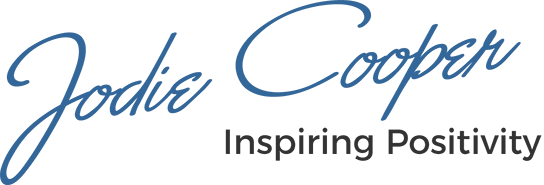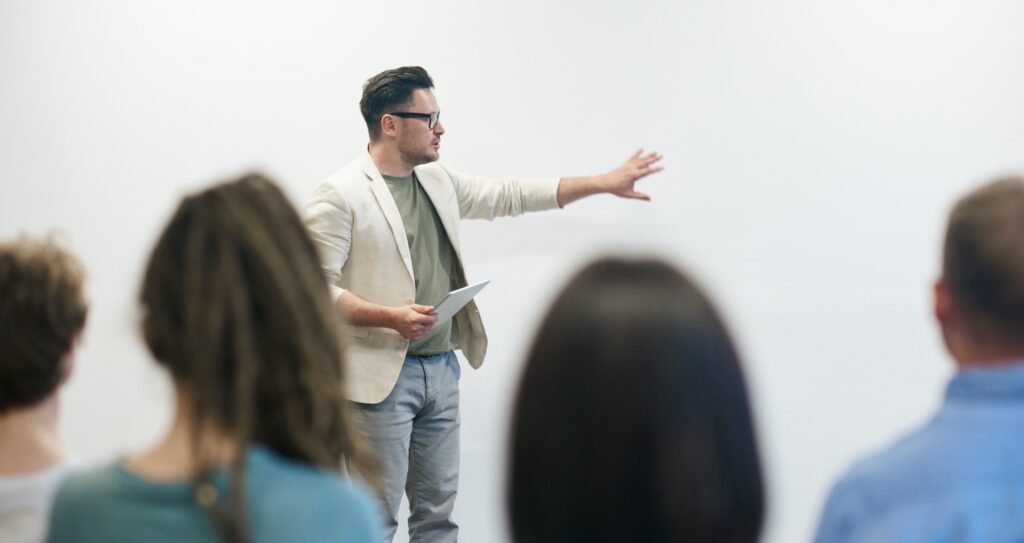 There are only 3 essentials to speaking in public. While speaking confidently to anyone, anytime might seem impossible right now. Rest assured, when you understand these three essentials, it will all get easier.
There are only 3 essentials to speaking in public. While speaking confidently to anyone, anytime might seem impossible right now. Rest assured, when you understand these three essentials, it will all get easier.
The three essential elements of public speaking are 1) Confidence 2) Content and 3) Connection.
1) Confidence
Most people overthink their challenges and underestimate their own strengths. Confidence is important, but it’s not about feeling fantastic all the time and never experiencing nerves. Real confidence is about recognising your personal value, and choosing to share it with others. It’s common to experience the impostor syndrome when speaking in public. It’s important to remember that while you may not be the smartest, or best educated person in the room, you have a unique perspective to share.
When you step onto a stage, you may experience sweaty palms, heart palpitations, a dry mouth and jitters. These are the physical symptoms of stress and can be scary to work with. But when your message is more important than your nerves, you will be able to regain your focus and appear confident. If you focus on providing value, and making a difference, you’ll find the audience will be more engaged and your talk will hit the mark. Essentially, it’s not about you. It’s about them.
The best way to build confidence and sure up your motivation to speak in public is by acknowledging the things you do well. When you finish a presentation, it’s likely you’ll recall the things you didn’t do well or forgot to say. Instead, try to focus on what you did do well and the positive parts of your presentation.
2) Content
What you say matters less than you think. In fact, only 7% of our communication is made up of the words we use. Our tonality and body language account for around 93% of the meaning behind what we say. Don’t overthink the content. Use stories to amplify your key points and ensure the key message is clear and concise.
When preparing a presentation, brainstorm all ideas first. Then, collate the most important message and develop a simple structure so your audience can recall main elements. Write out your notes in dot points to help you focus on the people in the room. When you script a presentation your brain get’s overwhelmed trying to perfect it. Then, when you lose your spot, you feel embarrassed and panic with the pressure of speaking in public. Never script a presentation.
Your notes should have a catchy opening, and an introduction to your topic and yourself. The body should be 3 – 7 main points, plus subpoints. Your close should include a short summary of your main points followed by your key message. The key message is the one thing your audience will take away and the most important part of your presentation.
3) Connection
 The audience will forget what you say, forget what you did but they will remember the way you made them feel. Take time to understand who is in your audience and consider how your content might best resonate with them. Stories and metaphors will bring your message to life and infuse emotion into your presentation. If you’re talking to preschool educators, using motocross as an example of endurance might not land. But speaking with a group of adolescent boys, motocross could be the perfect example.
The audience will forget what you say, forget what you did but they will remember the way you made them feel. Take time to understand who is in your audience and consider how your content might best resonate with them. Stories and metaphors will bring your message to life and infuse emotion into your presentation. If you’re talking to preschool educators, using motocross as an example of endurance might not land. But speaking with a group of adolescent boys, motocross could be the perfect example.
Your eye contact, body language and subtle gestures constantly tell your audience not just what you’re saying, but also what you’re thinking. Be sure that your message is authentic, and your body will naturally build a rapport with the audience that creates trust and a warm connection.
Give the audience a feel for who you are by sharing your experiences and wisdom. They can read a book to learn the content, but giving them an insight into who you are will make it meaningful. Take time to build rapport with the audience and get comfortable with pausing to create emphasis. A well timed pause helps the audience think and also stops any um’s or ah’s escaping.
Public Speaking Courses
If you feel like you need some help or support to master the 3 essentials of public speaking, be sure to book into a public speaking course in Wollongong soon. Alternatively, Jodie offers private public speaking coaching if you’d rather do some training first.





